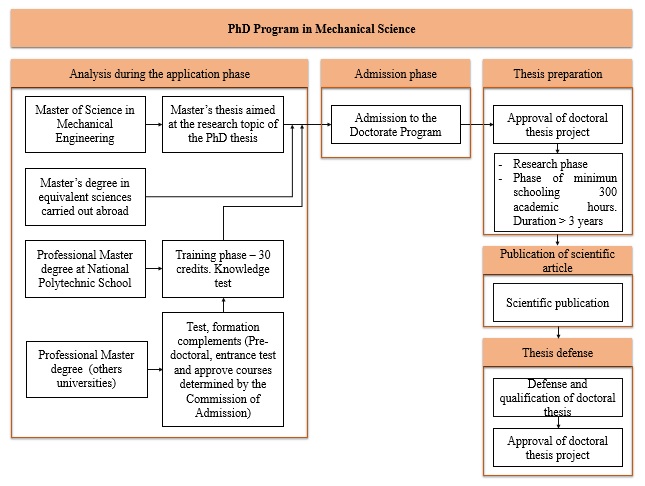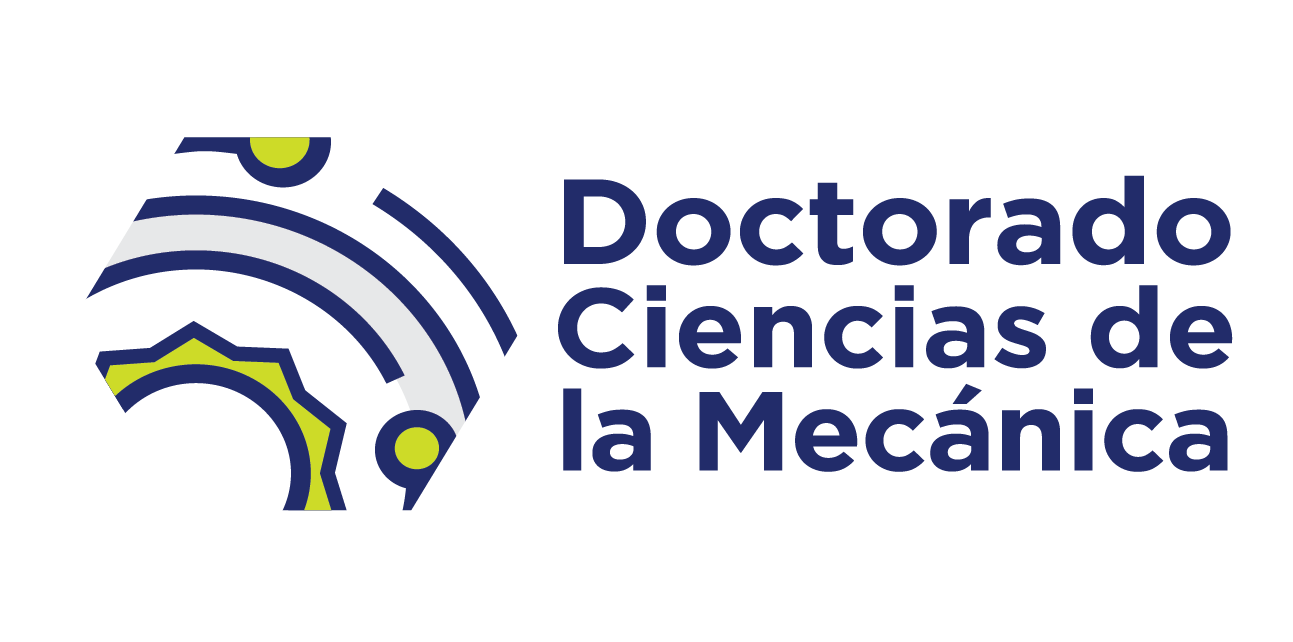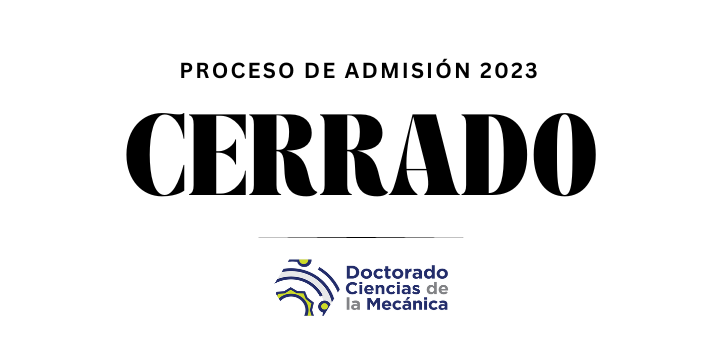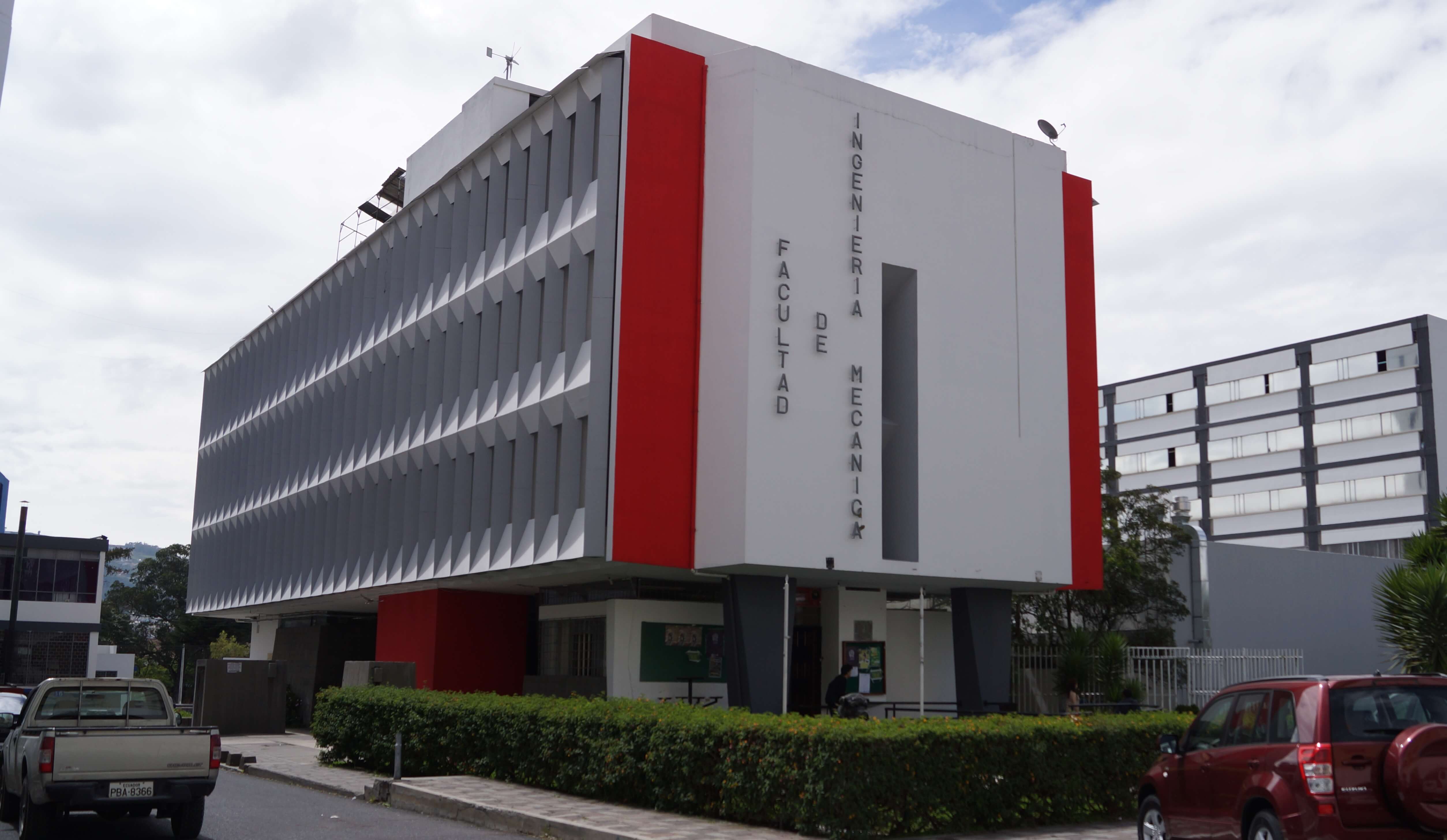The present doctoral program includes two phases, separated from each other by a qualification examination. The application phase, with a duration of approximately one year, where the student together with his tutor designs the methodology of his doctoral project; in this phase the student must take the school credits. The admission phase, where a court will evaluate the definitive research proposal. And the research phase, which lasts between 3 and 6 years.
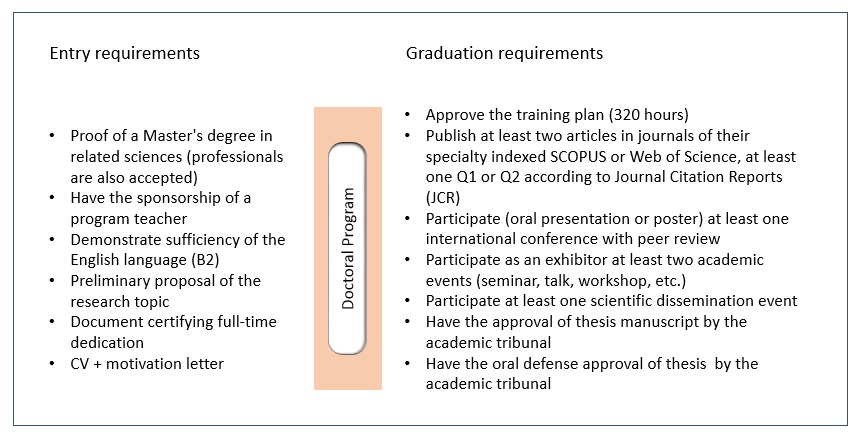
- Application phase
In a first phase, the student is admitted to the program based on the stipulated requirements, following the admission procedure. This phase lasts between 12 to 18 months, and the student, under the tutor direction, will work mainly in the formulation of research plan for the qualification exam. Likewise, in this phase the student will be asked to take three courses, corresponding to 144 hours, of their training. Additionally, students who must take leveling courses because they do not have a Master of Science degree in the area, must take them during this period. The application phase ends when the student and their tutor asks the doctoral committee to take the qualification exam
- Qualification test
This examination marks the transition between the application phase and the research phase. Once this exam is passed, the doctoral candidate becomes a doctoral candidate. Along with the application, the student will send the doctoral research plan. The doctoral committee will form an evaluation tribunal composed of three researchers who meet the same requirements as for the program's researchers. In this court, at least one researcher will be external to the program and recommended from an international university.
- Research phase
In this phase, the student is considered a doctoral candidate. During this phase, the student must complete the academic requirements for graduation. Once these requirements are met, in agreement with the tutor / director, the student will ask the doctoral committee for authorization to submit the manuscript. With this application, the doctoral committee will make up the grade court. This court will consist of five researchers who must meet the same requirements for the program's research facility. At least two of these researchers will be from universities, centers or laboratories external to the EPN.
